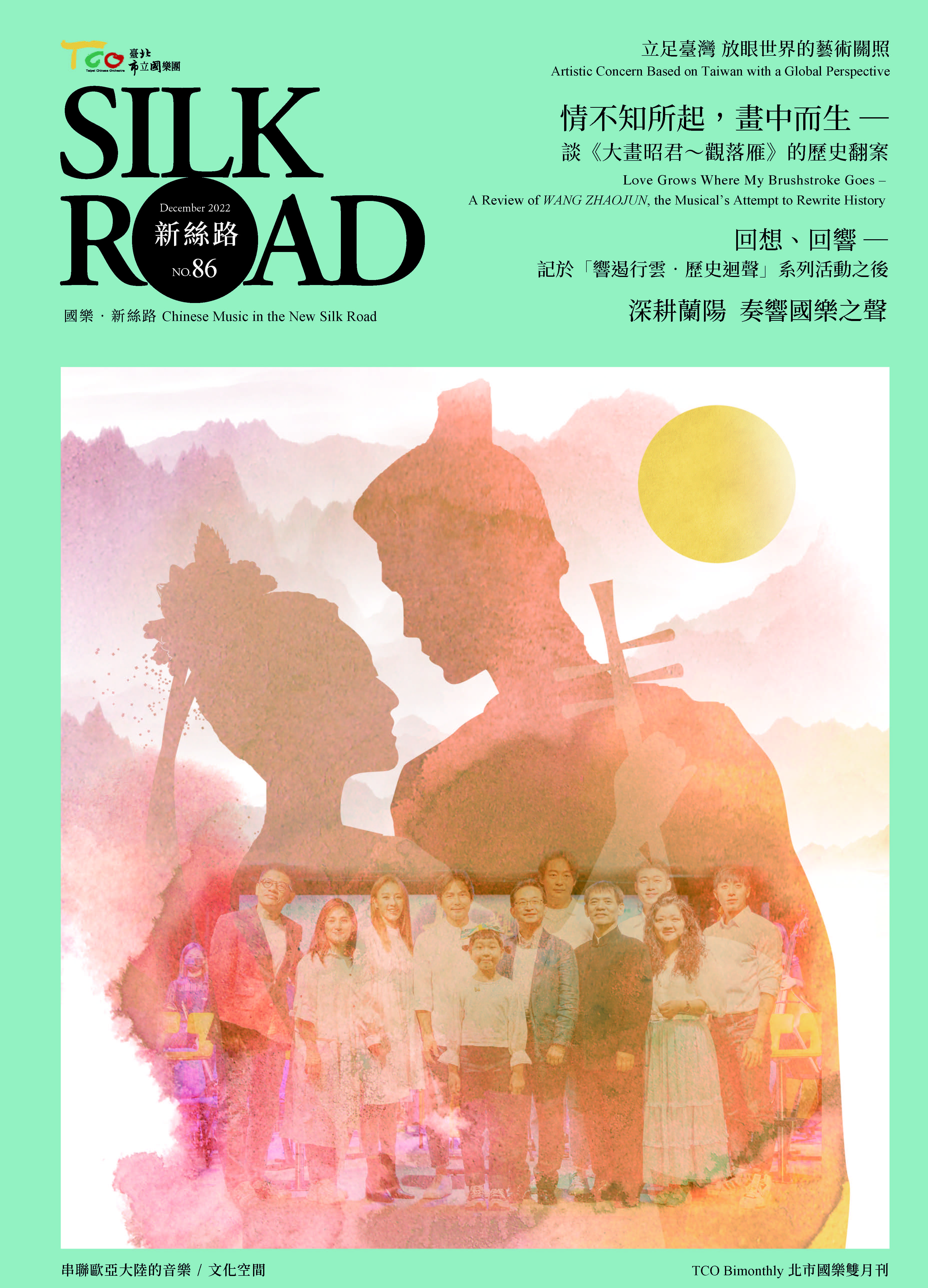Silk Road Bimonthly 086
The Taiwan Musicology Forum 2022, organized by the Taiwan Music Society and the Department of Chinese Music of the National Taiwan School of the Arts, featured single papers and panel discussions on the theme of Chinese music, such as the Female symbol performance of the Taiwan Women's Chinese Orchestra in the 1960s, the historical recording study of the Chenggong High School's Chinese Music Club, the Chinese music culture of Malaysia and the teaching and promotion of Chinese music in Japan. It also examines the themes of disease and war in the creation of Chinese music from the angle of social concern. In addition to serious academic discussions, the Tujia Daliuzi workshop led by Li Hui, honorably retired member of Taipei Chinese Orchestra (hereinafter referred to TCO), and the lunchtime music salon organized by graduate students from various universities added rich practical experience in music. These discussions reflect the growing diversity and importance of Chinese music in the environment of academia and performing arts exhibitions in Taiwan. As a leading Chinese orchestra at home, TCO has been committed to music practice for more than 40 years and enjoys a high reputation for its high-quality concerts. However, at the same time, we also need to face the challenges of the rapidly changing form of digital technology performance, the cross-cultural and cross-domain aesthetic challenges under globalization, the reflections on music culture in post-modernism and post-colonialism and so on. All these issues make us unable to hold on to the past, and a broader and multi-level dialogue is needed to lead musicians to face the audience and society in the new era. Therefore, we look forward to regularly discussing the deep cultural implications and music aesthetics behind the stage through academic projects such as the journal New Silk Road, the international symposium on Chinese Music in Spring and Autumn, oral history workshops, etc. At the same time, we will accumulate rich historical materials of Chinese music literature. It helps us to create more in-depth and profound works in the execution of various tasks entrusted to the orchestra, such as program planning, ommissioned creation, album publishing, cross-border cooperation and international exchanges. This issue of New Silk Road covers various aspects, from WANG ZHAOJUN, which explores the performance aspect, and the Star Project for Young Musicians of Chinese Music, to the Resounding-Hearing the Sounds of Pipa, which introduces academic promotion, and continues to visit the predecessors of Chinese music. In the The Moment section, we present HUANG Wen-Liang's exciting life in Chinese music, and further consider the spirit and methodology of oral history as an inspiration for the construction of Chinese music history. From these themes, we can slowly coalesce the diversified aspects and depths of the development of TCO and even Taiwan's Chinese music, echoing the article Features of Chinese Orchestra: Interview with General Director of Taipei Chinese Orchestra CHEN Cheng-Kang and Singapore Chinese Orchestra Executive Director Terence HO Wee San by guest columnist session LEE Ming-Yen in this issue. On the other hand, we have applied these concepts to our recent musical practice, presenting the Spectacular of TCO : Invocation CHIEN Wen-Pin & TCO concert, revitalizing Taiwan's historical characteristic instrument, the horn string, and presenting both and novel charms in the concert. We hope that the music of TCO is not just the personal practice of musicians, but an artistic concern that can be based in Taiwan and look at the world. Whether in the post-epidemic era or in the face of the stormy international situation of the 21st century, we can allow Chinese music to enrich the lives of our people and allow musicians to create in a stable and comfortable environment. Finally, echoing the discussion on "Global Music History" in this musicology forum, we believe that the development of Chinese music over the past century can also provide diverse perspectives and thinking for global music history, and we should continue to use Chinese music to dialogue with the world in the pulse of such times.

![Taiwan.gov.tw [ open a new window]](/images/egov.png)
